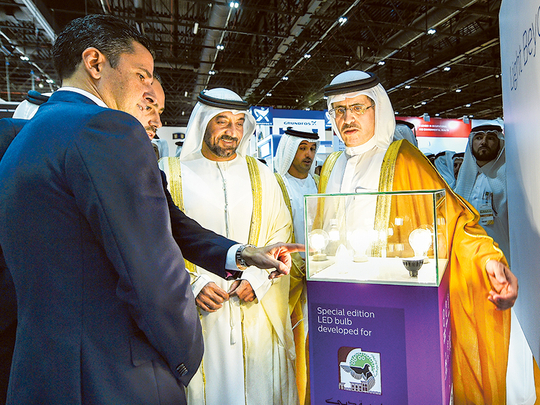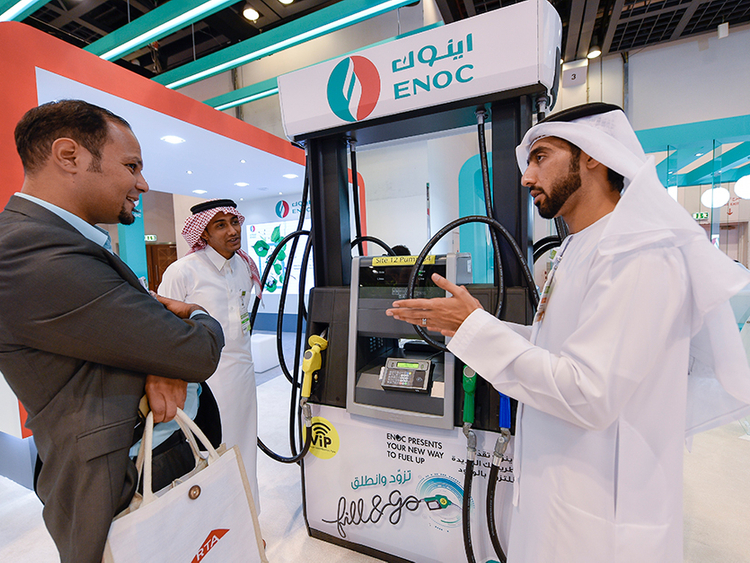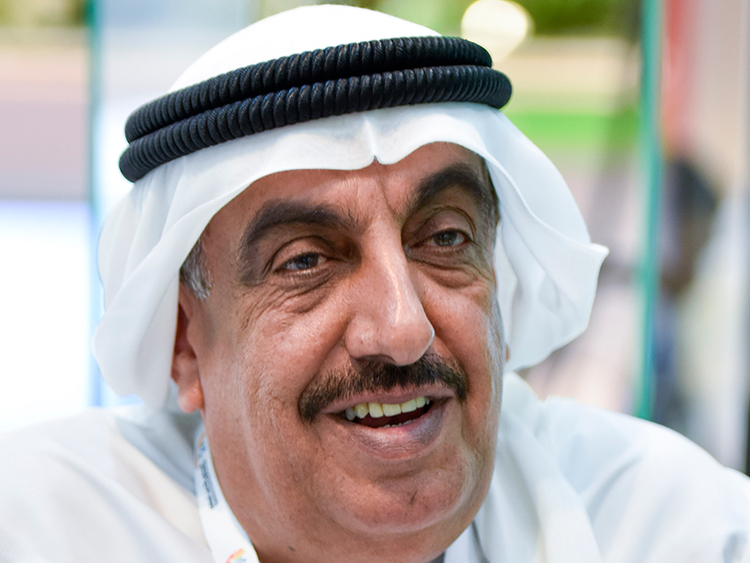
Dubai
Emirates National Oil Company (Enoc) expects crude oil prices to improve to between $50 (Dh183.5) and $60 a barrel over the next three years, group chief executive Saif Humaid Al Falasi told Gulf News on Tuesday.
The Dubai state-owned company that mainly operates in the downstream sector has benefited from two year’s of lower oil prices. The UAE government decided in 2015 to lift petrol subsidies that Enoc had been obliged to cover, reportedly costing the company millions of dollars annually in recent years.
Enoc announced a regional expansion strategy following the lifting of subsidies and is considering building fuel storage facilities in Africa, Asia and Europe.
The firm is in talks to build storage terminals in Kenya, Nigeria, Indonesia and Romania, Al Falasi told Gulf News in an interview at a conference in Dubai.
He said the facilities would have a capacity of between 200,000 barrels per day and 500,000 barrels per day.
“It depends on the other countries requirements and the opportunities we have,” he said, adding that an announcement would likely be made in 2017 on at least one of the facilities.
“It’s very well developed. You will hear, inshallah, in the future,” Al Falasi said,
Subsidiary Horizon owns stakes in storage facilities in Djibouti, Singapore, Saudi Arabia and off the North African coast, according to Enoc’s website. Enoc said on September 19 it would expand its Jebel Ali refinery facility by 70,000 barrels a day to 210,000 barrels at a cost of over $1 billion.
Oil has rebounded in the past week with benchmark Brent crude trading at $50.91 a barrel on Tuesday following a principle agreement reached on September 28 by the Organisation of Petroleum Countries (Opec) to limit production.
That is up from a 12-year low of $27 a barrel in January, however, it is still more than half the mid-2014 high of $115 a barrel. Earlier this year, Enoc, citing lower oil prices, reported a nearly 30 per cent decline in 2015 revenue to $15 billion.
However, Al Falasi said there has been “no major change in our strategy” and that it maintains plans to open 54 new retail petrol stations in the Dubai by 2020. Enoc also has a contract to build 27 retail petrol stations in Saudi Arabia. It has built five so far and will complete ten by the end of 2016 and a total of 14 by 2017, Al Falasi said.
He also said that Enoc has paid off its debt to the National Iranian Oil Company (NIOC) following the lifting of nuclear related sanctions against Iran in January.
“We don’t have any debt now to Iran,” Al Falasi said.
Iran’s official state-news agency IRNA reported on March 3 that Enoc had paid 50 per cent of its €5.3 billion debt to Iran.














